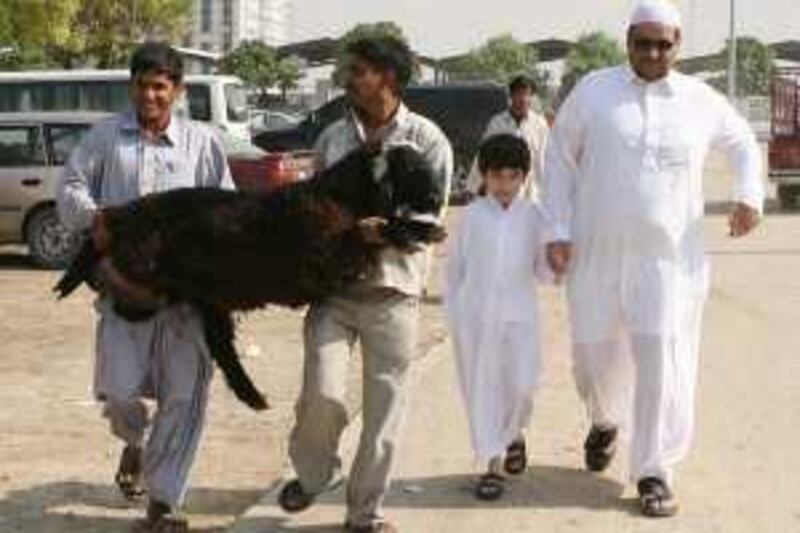SHARJAH // The cost of livestock in markets in the Northern Emirates has increased in recent weeks, with some traders inflating prices ahead of Eid al Adha, according to civic officials and customers. The price of goats and sheep, traditionally slaughtered ahead of the Eid festival, has risen by up to Dh400 (US$108) in some markets in Ajman, Ras al Khaimah and Umm al Qaiwain, as traders take advantage of the seasonal demand.
In some markets, local sheep were being sold for between Dh800 and Dh1,000, up from Dh600 just weeks ago. Iranian sheep, a popular breed, are being sold for Dh650, up from Dh500 since October, according to some traders. The price of some Somali sheep has increased from Dh250 to Dh450. A spokesman for Sharjah's Economic Development Department said price-fixing is common during this time of the year, but stressed that traders are not allowed to arbitrarily increase prices.
Hussein al Samad, 35, who works as a trader in Ajman's livestock market, said they had not yet received any communication from the economic department regarding the fixing of prices. "If no price restrictions are made on livestock by Eid time we will make a lot of money," he said. Zaidi al Salti, an official at the Sharjah livestock market, said some traders were misleading customers about the origin of the animals so they could charge higher prices. Some were selling Somali or Indian sheep as Iranian; sheep from Iran usually fetch a higher price. Traders who have been found doing this have been warned to stop immediately, he added.
Bilal Mohammed, a sheep vendor in the Sharjah market, attributed the price increases to inflation across the country. The higher cost of fodder had contributed to increased prices for sheep, he said. "Everything in the UAE is now expensive, from rent to food. How are we going to meet our own costs if we always stick to the same prices?" Yesterday Ahmed Abdul Halim, 58, an Egyptian living in Sharjah, had no luck finding an Iranian sheep that met his budget of Dh400 to Dh500.
ykakande@thenational.ae






